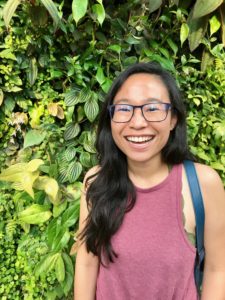Incorporating Resource Stewardship into Medical School Curricula: My Experience as a First Year Medical Student
By Cassandra Sunga
This past spring, I dropped a knife on my foot while cutting my birthday cake and completely lacerated the tendon on top of my big toe. Six hours after waiting for imaging resulted in the following assessment – 6 weeks non-weightbearing and surgery.
In order to get the most support between MRI’s, podiatry visits, and the hospital, I decided to fly home to Arizona for the procedure. I flew home on the pretense that my podiatrist was in network and would be able treat me under our insurance. Once I landed and visited with her, however, her office’s surgical coordinator called me to let me know that both my podiatrist and her facility of choice were out-of-network. Furthermore, anything paid out-of-pocket for the procedure would not be redirected toward meeting my deductible.
This was by no means my first interaction with our health care system, but it was definitely the most frustrating in terms of cost and affordability. I had to take two weeks off from school just to be able to balance coordinating between calling different hospitals, doctor’s offices, imaging centers, and insurance companies.
Without personal experience or formal teaching on health policy and management, I would argue that it is quite difficult as a medical student to conceptualize the amount of time, energy, and money that it takes to receive high-value care. The sheer nature of the content that must be learned in medical school largely predisposes our educational experience to be taught in a vacuum. Disease X is caused by Y, use Z to treat it. Physiology, diagnose, management – next. Between back-to-back classes in the anatomy lab and the variety of lectures we receive in topics like pathology or pharmacology, it is hard to find the time to learn about the sociopolitical context that we will operate in as physicians. And yet, it is imperative that we understand that we will ultimately have to find a way to balance advocating for our patients with employing financial stewardship for the finite resources available to us.
As one of two Choosing Wisely STARS (Students and Trainees Advocating for Resource Stewardship) program participants at the University of Washington School of Medicine, I had the wonderful opportunity of helping incorporate value-based principles into our curriculum as a first year. Through our faculty advisor Maralyssa Bann, we were able to dedicate an entire day in our Ecology of Health and Medicine course on value-based care and Choosing Wisely. My summer research project was also centered on evaluating how the presence of non-medical, or social, factors may impact the likelihood that a patient may experience low-value care.
Physicians have an enormous amount of control over health spending in the United States. If every medical student across the nation will one day collectively dictate the majority of healthcare spending in the future, we have to learn how to practice both clinical and financial professionalism from the get-go.
Cassandra Sunga is a second year medical student at the University of Washington School of Medicine in Seattle.

